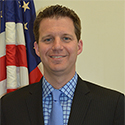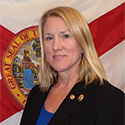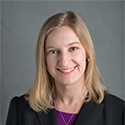Development and Publication of New Standards and Best Practices - The Process
This webinar is Part 1 of the three-part series Biology/DNA Standards and Best Practices Developed by OSAC & ASB. This webinar covers:
- How the documents were conceived, written and developed into published standards
- An overview of OSAC and ASB; their history; the general process of document creation and construction
- The future process of maintaining or revising the documents
Summary
Biology/DNA Standards and Best Practices Developed by OSAC & ASB Three-Part Webinar Series
This series of webinars is designed to educate the forensic and criminal justice community on new/emerging standards and best practice recommendations applicable to forensic biology and DNA testing laboratories. The series will provide detailed information regarding the development of the documents aimed at promoting best laboratory practices and high-quality testing. In addition, we will discuss new standards currently available in the field for use and implementation in crime laboratories around the world. Finally, we will cover standards and best practices currently under development, and how members of the community can participate in the development and promulgation of future documents.
Series Presenter Overview
Since their first meeting five years ago, the Biological Methods and the Biological Data Interpretation and Reporting Subcommittees of the Biology/DNA Scientific Area Committee (SAC) of the Organization of Scientific Area Committees (OSAC) for Forensic Science have been writing many standards and best practices documents relevant to forensic Biology and DNA testing laboratories. Upon completion of the initial OSAC drafting process, these documents then moved to the American Academy of Forensic Sciences (AAFS) Academy Standards Board (ASB), a standards development organization created in 2015 and accredited by the American National Standards Institute (ANSI).
Other Webinars in this Series
- Part 2: Mixture Interpretation Validation, and Protocol Development and Verification
- Part 3: Training Standards Overview
Part 1 - The Process
The first webinar in this series describes the complete process for standards development within the Organization of Scientific Area Committees (OSAC) and the American Academy of Forensic Sciences (AAFS) Academy Standards Board (ASB).
Speakers

John Paul Jones II
OSAC Program Manager
National Institute of Standards and Technology (NIST)

Robyn Ragsdale, PhD
Senior Crime Laboratory Analyst
SAC Biology/DNA; Florida Department of Law Enforcement (FDLE)
Robyn Ragsdale, Ph.D. SAC Biology/DNA; Florida Department of Law Enforcement (FDLE), Senior Crime Laboratory Analyst—Dr. Ragsdale is a senior crime laboratory analyst in the Biology Section at the FDLE in the Tampa Bay Regional Operations Center and has been with FDLE since 1995. Along with casework duties, she has also served as statewide DNA technical leader (2001-2007) as well as a crime laboratory analyst supervisor (2007-2011). She was a member of SWGDAM (2002-2007) on the Quality Assurance Subcommittee and served as both a Legacy and International Assessor for ASCLD/LAB and now conducts assessments for ANSI-ASQ National Accreditation Board. Dr. Ragsdale joined the Organization of Scientific Area Committees as Chair of the Biological Data Interpretation and Reporting Subcommittee in 2014 and was appointed to the Chair of the Biology Committee and to the Forensic Science Standards Board in 2018. She is also a member of the Biology Consensus Body of the American Standards Board of AAFS.
Robyn Ragsdale received her Ph.D. in Medical Sciences in 1990 from the University of South Florida College of Medicine (USFCOM) and conducted postdoctoral research in the Department of Biochemistry and Molecular Biology also at USFCOM.

Teresa Ambrosius
Secretariat
Academy Standards Board (ASB)
Teresa Ambrosius is the Secretariat of the ASB, she started with the ASB in January 2016 as the Technical Coordinator and was promoted to Secretariat in December 2017. She manages the 13 consensus bodies and, along with staff, over 100 document working groups developing standards, technical reports, and other output, ensuring that all documentation is ANSI compliant. Ms. Ambrosius came to ASB from API where she spent nearly 20 years, primarily as Editorial Coordinator. She is the Publications Council Director on the Board of the SES, she works with the SES committees in the production of the Society’s Journal and the management of the World Standards Day Paper Competition. She is also a member of the ANSI Organization Member Forum (OMF) and the ANSI Board of Standard Review (BSR).
In 2014 she was awarded the SES/CSA Lorne K. Wagner Memorial Award, which recognizes an SES member who has made an outstanding contribution to SES.